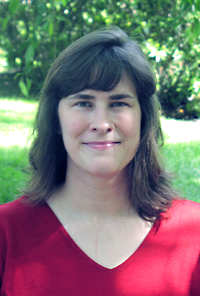Superfund Research Program

Laura Senier, Ph.D., received the Karen Wetterhahn Memorial Award in 2008, when she was a doctoral student in sociology at Brown University. Senier was recognized for the work she did through Brown’s Community Outreach Core, providing leadership development support to environmental justice communities throughout Rhode Island. An important innovation of the Brown SRP was that it integrated research translation and outreach activities and brought together numerous stakeholders in these efforts, including academics, community leaders, and regulatory officials. Senier was especially involved in creating service learning opportunities for undergraduate students to give them firsthand experience in community organizing for environmental health. She supervised students as they summarized scientific reports, canvassed neighborhoods, performed legal research, composed pamphlets and brochures, and coached residents of all ages in public speaking.
The community groups that Senier worked with faced a diverse range of environmental and community organizing challenges, including a watershed organization that had a recently-discovered Superfund site within their watershed; a residential neighborhood that had been developed on contaminated fill from a coal-gasification plant; and several urban neighborhoods that were fighting municipal decisions to construct public schools on contaminated land.
According to her research advisor, Phil Brown, Ph.D., "Laura has a deep sensitivity to these communities, finds creative ways to use university resources to assist these underfunded and understaffed groups, and facilitates their interaction with the state agencies." Senier and her students connected communities to other members of the Brown SRP team, and together they secured some decisive victories for community health. Under pressure from community organizers, a dye manufacturer in rural Rhode Island negotiated a settlement that included equipment upgrades to reduce emissions and funding for a comprehensive health assessment of the surrounding community. Legal advocates won a court decision requiring community involvement in decisions about the cleanup and reuse of contaminated land, especially for sensitive reuses like schools or day care centers. Additionally, in July 2006 the governor signed legislation making homeowners of contaminated properties eligible for home-equity loans, so that they could secure temporary financial relief while they await a more comprehensive cleanup; the students who worked on this project were present for the ceremonial signing. Senier wrote an article recounting these successes and tracing them to the integration of research translation and outreach that is at the heart of the Brown SRP.
Senier now holds a joint appointment in the Department of Community and Environmental Sociology and the Department of Family Medicine at the University of Wisconsin-Madison, where she teaches undergraduate courses on environmental justice and public health. Her research identifies technical, ethical, and political barriers in research translation, especially in the investigation of gene-environment interactions in the development of common, chronic diseases.


